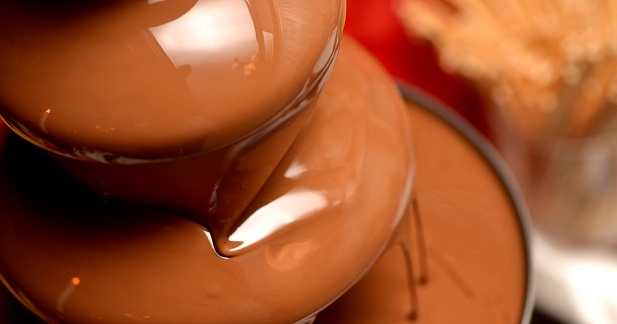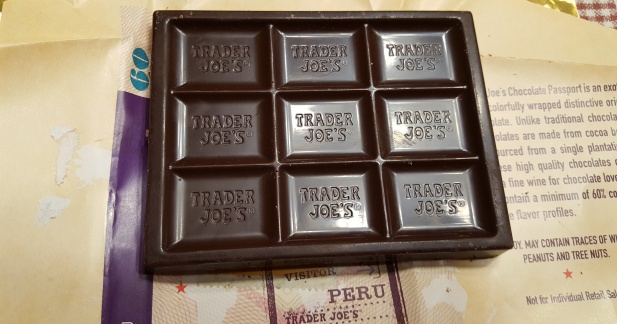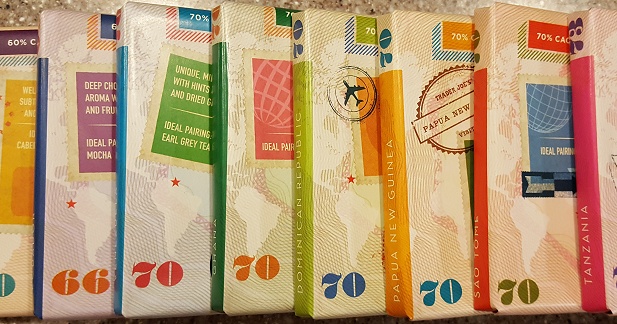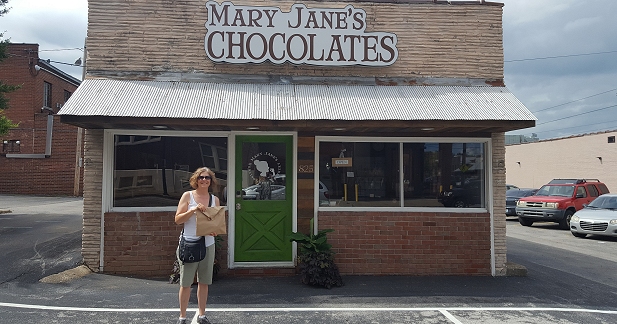chocolate education

Extremely (and Supremely!) Dark Chocolate
August 2, 2018
I eat very little refined sugar and don’t consume artificial sweeteners. Not because I have to, but because I want to. For me, it’s the smart thing to do. I feel better physically and mentally. I live more days having that wonderful “sense of well-being” than I do without. And I still have a chocolate-filled life!
Last week I reviewed two stevia sweetened chocolates. I rarely eat chocolate with sucrose replacers like alcohol sugars or stevia. I much prefer eating chocolates that lower the sugar by increasing the cacao percentage.

My Chocolate Fountain Adventure
June 12, 2017
My son graduated from college a couple weeks ago. Earlier, during the party planning stage, he informed me that he’s not really into cake for dessert (what!?). Sweets, he said, are more my style.
So, when it came to figuring out what to serve, I was looking for easy, delicious, fun, and well, not the typical decorated sheet cake.
While different ideas kept floating around the edges of my thoughts (but not really impressing me), my mom suggested a chocolate fountain. Hmm. That had appeal. What could be easier than self-service dessert? And what could be more fun and delicious than a cascading wall of chocolate with endless dipping treats?

Why Is Chocolate Harmful To Dogs?
April 13, 2017
Many pet owners do not know that chocolate is not good for their pets, especially when consumed in large quantities. A small piece of chocolate can cause problems for your pet. A large piece of chocolate can be quite severe.
The truth is that chocolate is poisonous to pets. So, why is chocolate a favorite snack for humans, but poisonous for dogs?

Trader Joe’s Chocolate Passport – Venezuela 70%
February 27, 2017
Chocolate of the week: Venezuela
Venezuela sits along the northern coast of South America. Colombia borders on the west, Guyana on the east, Brazil on the south. The islands of Trinidad and Tobago are off the northeast border.
Like many cacao growing countries, Venezuela has regional climates that produce cacao of different flavor profiles.

Trader Joe’s Chocolate Passport – Peru 60%
February 13, 2017
Chocolate of the week: Peru
Peru is situated in western South America, bordered by Ecuador, Colombia, Brazil, Bolivia, Chile, and the Pacific Ocean.
Cacao is grown in many regions throughout the country. (As an interesting aside, in 2007, a rare variety of cacao called Pure Nacional was rediscovered in Peru. Decades earlier, disease had destroyed 100% of these trees, or so it was thought. Pure Nacional was put on the extinct species list. Pure Nacional is a white cocoa bean, not the common purple color.)
Peru’s diverse microclimates provide unique growing conditions for cacao - different varieties of cacao growing at different altitudes.

Trader Joe’s Chocolate Passport
February 6, 2017
This blog post marks the beginning of my series on single-origin chocolates from Trader Joe’s Chocolate Passport variety pack.
Each week I will review one of these country of origin chocolates: Peru 60%, Ecuador 66%, Ghana 70%, Venezuela 70%, Dominican Republic 70%, Papua New Guinea 70%, Sao Tome 70%, and Tanzania 73%.

Mary Jane’s Chocolates: Origine Bars – Saint Dominique and Mexique
September 19, 2016
Last week I wrote a review on Mary Jane's Chocolates dark chocolate coated dried cherries. While I was in the chocolate shop, a great opportunity presented itself. I found something tasty AND educational -- chocolate melting wafers based on a single-source country of origin.
This is very exciting for me!
Read more

Divine, Cheese, and Wine!
January 4, 2016
A friend of mine, Amanda, recently moved into new a home. “I’ll bring the wine and cheese”, says my friend Kathy. “I’ll bring the chocolate”, I say, “Why don’t we pair the chocolate with the wine and see what happens?”
They agreed to the plan, but confessed to not having much experience consuming the two at the same time. However, being lovers of both chocolate and wine, they couldn’t see a downside. This would be an opportunity to eat, drink wine, and experiment – a few of our favorite activities!

Will It Chocolate? Funny Video Friday!
October 23, 2015
Good morning, and Happy Friday from CUO!
As you know, we're all fun and games in the world of chocolate. Today, we bring you a video that has an extra dose of funny chocolate humor.
This video is a gem. It made me literally LOL!

The CUO Chocolate Survey – We Want To Know!
August 28, 2015
Here at CUO, we're always learning about chocolate, and all things pertaining to the rich, dark, wonderful substance.
Now, we want to learn from YOU! Read more

